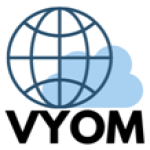TechnologyCounter provides genuine, unbiased real user reviews to help buyers make informed decisions. We may earn a referral fee when you purchase through our links, at no extra cost to you.
List of Best Retail ERP Software
Showing 1 - 10 of 10 productsWe are a best supplier of Supermarket software in India. We have supply excellent tweaked software at a reasonable cost. Our product is versatile and vigorous business the executives instrument for shops, vendors and distributers; it is a more approp...Read Trigent Supermarket Reviews
A fully integrated web-based, mobile-responsive solution designed for SMEs, Medium-sized and Large Enterprises. You can standardize, streamline and automate all your processes through Axantas integrated business solution and stay ahead in the highly...Read Axanta ERP Reviews
We are a distinguished Custom ERP Development Company based in Gujarat, dedicated to delivering exceptional ERP software development services and business solutions tailored to the unique needs of your dynamic enterprise...Read ArkayERP Reviews
Looking for pricing details, customization requirements or have other queries? We are just a click away.
Viva Medical Billing, a revolutionary software that simplifies and enhances the medical billing process. With its efficient and user-friendly features, Viva Medical Billing is changing the game in the healthcare industry. Say goodbye to tedious and e...Read Viva Medical Billing Reviews
Logic Business is outstanding amongst other market programming that lets you monitor deals measure and the manner in which representatives are performing...Read Logic Business Reviews
Jewellery elegance to your appearance, J-Soft Extreme ERP grace to your business.
J-soft Extreme ERP software is used in Gold, Silver & Diamond jewellery business operations to grow business scale and compete without any complexity and cost. Additionally, J-soft extreme ERP can be integrated with E-Commerce platform...Read Alpha-E JSoft Extreme ERP Reviews
Smaket is a user-friendly online billing and accounting software designed for small and medium businesses. It simplifies your financial tasks, including GST compliance, without requiring prior accounting knowledge. Smaket offers a 14-day free trial,...Read Smaket Reviews
Wholesale software is beneficial for a businessman who doing business of wholesale. In this software manage the rate of the product inclusive or exclusive. So this rate entry is useful for customers and users also. The software manages purchasing &am...Read Evolve Wholesale Management Reviews
Vyom ERP is a enterprise resource planning software that provides solutions for efficient business management such as finance, human resources, inventories, and more...Read The Vyom ERP Reviews
Smaket is a user-friendly online billing and accounting software designed for small and medium businesses. It simplifies your financial tasks, including GST compliance, without requiring prior accounting knowledge. Smaket offers a 14-day free trial,...Read Smaket Reviews
We are a distinguished Custom ERP Development Company based in Gujarat, dedicated to delivering exceptional ERP software development services and business solutions tailored to the unique needs of your dynamic enterprise...Read ArkayERP Reviews
A fully integrated web-based, mobile-responsive solution designed for SMEs, Medium-sized and Large Enterprises. You can standardize, streamline and automate all your processes through Axantas integrated business solution and stay ahead in the highly...Read Axanta ERP Reviews
Wholesale software is beneficial for a businessman who doing business of wholesale. In this software manage the rate of the product inclusive or exclusive. So this rate entry is useful for customers and users also. The software manages purchasing &am...Read Evolve Wholesale Management Reviews
- What is Retail ERP Software?
- Common Capabilities of the Top Retail ERP Systems
- Who Uses the Retail ERP Solution for Business?
- Why do You Need the Best Retail ERP Software?
- Types of Buyers and the Best ERP Solution
- Market Trends for Retail Enterprise Resource Planning Software
- How to Find the Best Retail ERP Software?
- Conclusion
What is Retail ERP Software?
The retail industry has witnessed a great evolution over the past few years. It is one of the few industries that have changed a lot owing to technological advancements. Customers demand a smooth and convenient shopping experience.
This has made retailers change their marketing and management techniques so that they are able to meet the customer’s expectations. With social media platforms and eCommerce websites getting popular, the demand for consumer goods is growing rapidly. The question is how do retailers cater to these demands? Well, that’s when the retail ERP solution comes into the picture.
Retail ERP software is designed to help retailers adjust their businesses to the omnichannel retail setting. The software enables them to automate a plethora of management and marketing tasks. The main function of the software is to simplify and enhance customers’ shopping experience. It also generates reports and analytics that help companies make informed decisions.
In order to grow your business, you need to focus on creating a retail environment that meets all your customers’ expectations. This mainly includes streamlining the checkout process, replying to your client’s feedback on social media, sending them a quick notification that informs them about their order status, and so on.
Common Capabilities of the Top Retail ERP Systems
1. Customer Relationship Management
Nowadays, retailers are adapting to the business environment where they offer personalized service to customers. That’s what customers expect from a retailer. In order to provide your target audience with a personalized shopping experience across different channels, you need the best retail ERP software that features a customer relationship management module.
The module enables retailers to gather information about their customers’ buying history, shopping patterns, and preferences. It gives you an opportunity to win your audience’s trust by offering them personalized recommendations.
A reliable Enterprise Resource Planning software application must allow retailers to get insights into the customer’s shopping patterns. It must also help you record their personal details and contact information so that you can send them notifications and regular messages for brand promotion.
2. Rewards and Loyalty Programs
You must have heard of businesses implementing a loyalty program to gain their audience’s trust and engagement. Well, this marketing technique has become quite common these days. Even small retailers create a loyalty program to build audience engagement. A study suggests that two-thirds of customers are highly likely to abandon a store if they don’t get special treatment for being loyal customers of the company.
Retailers need an effective reward program that helps companies identify their loyal customers. The software must also support various programs that are designed to motivate your loyal customers. Loyalty and reward programs help you retain your existing customers.
Considering how difficult it is for retailers to grab the attention of a new audience, their best bet is to retain the existing clients. You can use the software to build membership plans. Besides that, you can create different levels and encourage your customers to clear a level to redeem the loyalty points.
3. Product Management
Another important feature of ERP software is product management. This automated solution allows retailers to classify products into different categories and filter the search result by the supplier, product specifications, price, and other options. Additionally, it must support the barcode scanner that scans all the products your customers have purchased from your store. It must create an automated invoice.
As the name suggests, the product management module handles the items in your inventory. It offers you a way to organize products in an efficient manner. It also makes it easier for your sales team to access product information from a single place.
4. Inventory Management
Inventory management is another hectic task. Fortunately, you don’t need to spend money on a manual labor team to handle the inventory. Using the inventory management module of the retailing ERP software, you can monitor your inventory and track the movements of the products easily.
The main function of this module is to help the retailer get a real-time view of their inventory and gather information about the best-performing products. With this software in place, you will get regular notifications for inventory replenishment.
It also helps you identify the top-selling products. The module allows you to handle the inventory from the comfort of your home. Besides that, you can monitor the movements of the products between different warehouses from the ERP software screen.
5. Sales and Analytics
Remember that only the paid plans of the ERP solution feature sales and analytics modules. It enables businesses to track their sales performance and make sound business decisions. You can use the sales and analytics module for generating accurate reports. Some modules allow you to import this data to your computer for easier accessibility.
You can also share these reports with your colleagues or co-workers for smoother management. Based on these reports, you can plan future marketing strategies, such as product discounts, pricing, forecast, and more. The sales and distribution ERP module also enables retailers to collect information about the top-selling products.
6. Accounting
Some ERP solutions do not come loaded with the accounting module. If that’s the case, then you are going to need a separate accounting module, such as Zipbooks, to handle your day-to-day transactions and accounting activities.
It is, therefore, important for a retailer to look for a solution that features an accounting software application that can be used for recording daily transactions and generating accurate accounting reports.
The built-in accounting module in the best ERP software for retail means your accountants and employees will stay up-to-date with the amount you owe to the suppliers and the outstanding amount from your customers. It can save you the money you would otherwise spend due to accounting errors.
For instance, duplicate invoices are quite common in the retail industry. Usually, retailers end up paying the bill twice. In the long run, this manual accounting error can cost your business thousands of dollars.
Accounting Software in the best retail ERP software not only avoids these manual errors, but it can calculate the import duty, freight charges, tax, and insurance cost. Besides that, all your daily transactions will be recorded in the software every day.
7. Price and Discounts
Mentioning a discount on each product manually is a time-consuming process. Similarly, it can be quite difficult for a retailer to develop a perfect pricing strategy. The price and discount modules in the ERP software application help streamline the basic pricing tasks.
First of all, the module generates an accurate sales and purchase list. You can also use it for adding discounts, vouchers, and other promo offers to different products. The best part is that the Enterprise Resource Planning solution automates all these tasks, making it a whole lot easier for the retailer to focus on productive activities while the system manages pricing and discounts.
8. Employee Management
Another important function of the ERP software for retail business is employee management. The software comes loaded with the employee management module that helps retailers track the number of working hours and days of each employee and issue their paychecks accordingly.
You don’t have to spend your time recording employee's attendance in the registers and spreadsheets. This automated software solution can manage employee’s shifts and help you track their working hours.
The advanced Enterprise Resource Planning software enables retailers to monitor employee’s performance and productivity. You can also generate their performance reports and offer them incentives based on the profits they generate for your business. In other words, the employee management module gives you an opportunity to identify productive employees.
9. Order Management
Retailers need to implement a strong automated system to process the customer’s shopping requests and orders seamlessly. Managing your customer’s orders gets a little difficult when you receive orders from multiple platforms, including social media sites, eCommerce, mobile apps, and emails. The order management software is designed to receive and process orders from Amazon, Shopify, eBay, eCommerce websites, and social media.
The best quality of this module is that it enables retailers to get all the orders stored in a single centralized system. Try to look for a solution that allows you to manage your orders both offline and online. That way you will be able to receive and complete orders in the shortest possible time.
10. Returns Management
Managing returns is another challenging aspect of the retail industry. The open-source retail ERP software you purchase must be capable of processing returns efficiently. The returns management module in the Enterprise Resource Planning software enables retailers to send the returned products to the warehouse so that they are ready for resale instantly.
It must also support an option that allows you to place the returned products in a specific location for further review (if the returned goods are not in the original condition). Additionally, this module allows retailers to issue refunds for damaged or wrong orders.
Who Uses the Retail ERP Solution for Business?
The retail ERP software is specifically designed for retailers. Any small or large-scale company that is planning to expand its operations and simplify the management tasks can invest in a retail software ERP application.
Usually, the managers and supervisors are responsible for operating the Enterprise Resource Planning software. They use the system to track the inventory status, monitor the movement of goods from one warehouse to another, prepare financial accounts, track sales and purchases, generate invoices, manage employees, improve customer relationships, and develop loyalty and reward programs for customers.
It has many applications. Even employees can use ERP software for registering employee attendance and tracking their productivity. As mentioned before, ERP software has become a necessity these days. You can’t keep recording a considerable amount of data in the spreadsheets and registers. Eventually, you will need to transform your outlet into a digital store.
SMEs and large-scale organizations need to embrace the retail ERP software for smoother management. Even startups need to adapt to the retail ERP system for online retailers. Not only will it help you cut down the extra management expense, but it can be a great way to get some time for business planning and marketing.
Why do You Need the Best Retail ERP Software?
Every retail store (regardless of the size and nature) needs effective ERP Software to improve business performance. In order to keep up with the technology and customers’ demands, retailers need to embrace the ERP system for retail business.
Managing your inventory, keeping track of your employee’s performance, gathering information about your customers, developing loyalty programs, and catering to the customers’ expectations can turn out to be a challenging and time-consuming process if executed manually.
To streamline these operations, ERP solution comes loaded with a broad range of modules that perform different management and marketing functions. Let’s check out the top reasons you need ERP software.
1. Store Your Data Efficiently
Retailers have to handle a large volume of data. Not only do you need to record these details, but you are supposed to store them in a centralized system. That’s what the ERP solution helps you achieve. It organizes a significant amount of business and customers’ data in a single place.
When the data is stored in a single place, it gets easier for your business associates and the entire team to access any information they need efficiently. This also allows you to keep your data up-to-date and organized.
2. Seamless Communication
Smooth and fast communication is important for retail stores. No matter how small your company is, you need to facilitate smooth communication between your employees and business associates. With an effective ERP solution in place, you don’t have to worry about the employee’s interaction. The system keeps all your employees connected through a single platform. Fast communication not only improves business productivity, but it helps you make informed decisions.
The ERP system connects all the departments of your retail store. This includes the accounting, sales, purchase, order management, inventory, and customer care teams. If there is any change or update in the client’s order, then each department will be notified automatically. You don’t need to pass this information separately to each department.
3. Improved Customer Experience
The main goal of the retailer is to retain their existing customers. Since getting the new audience to trust your brand and shop from your store is a little challenging, most retailers rely on the existing customers. They develop a strong retention plan to retain their existing customers.
The ERP software comes with a customer relationship management module that helps you achieve customer satisfaction and retention. In fact, one important function of the ERP system is to help retailers build customer engagement. It helps you process your customers’ orders, notifies them about their order status, and send a message every time you have some exciting offers. It also allows you to respond to your customers’ feedback.
4. Save Time and Costs
It goes without saying that an ERP solution saves you the labor cost. You no longer need to pay an accountant for recording transactions when you have a high-quality ERP solution in place. Similarly, you don’t have to hire laborers for inventory management, reporting, and other administrative tasks.
Not only does the software cut down the business expenses on manual labors, but it saves you a lot of time by automating a plethora of management activities. You can use this time to plan effective marketing strategies for your customers.
Types of Buyers and the Best ERP Solution
Considering the current customer demands and changing trends, it is safe to say that ERP software has become a major requirement for all types and sizes of businesses. Even small-scale companies need effective ERP software to manage the day-to-day administrative tasks.
Enterprise Resource Planning is a centralized system that holds a large volume of business data and automates different types of management tasks. Let’s check out the common types of ERP solutions for retailers.
1. SMEs: Small scale and medium-sized companies often struggle with administrative tasks. First of all, they lack the resources to execute the management activities efficiently. Secondly, they have to spend a good amount of capital to hire a workforce for management activities.
ERP solution can save your cost and time on mundane business operations. ERP software for small businesses features the basic modules that streamline the regular marketing and administrative operations, such as finance & accounting, customer management, employee management, sales and purchase records, product and inventory management, and more.
Now that you are running a small business, it makes sense to invest in the ERP solution designed for SMEs. List your business requirements and the modules you will need to automate the management tasks.
2. Large-Scale Companies: For large corporations, the developers have launched enterprise-level retail ERP software. This system comes packed with additional features that help you perform the management tasks seamlessly.
These advanced Large-scale ERP Software enable managers and business staff to collect important insights and make informed business decisions. From sales and purchases to customer relationships, the enterprise-level ERP software can handle it all.
Market Trends for Retail Enterprise Resource Planning Software
The ERP software market will become a $48.2 million industry by the end of 2022. In the past few years, we have seen tremendous growth in the Enterprise Resource Planning software industry the future of the ERP market will continue to meet vendor needs efficiently.
Developers have started to launch enterprise-level solutions that offer a broad range of functions. Besides that, these software solutions can be integrated with third-party apps and automated solutions. Experts believe that the ERP software market will experience further growth in the pricing strategy and the deployment method.
Nowadays, the cloud implementation methods models like SaaS are getting popular. Moreover, the developers are adapting to the monthly subscription model rather than a significant capital. Let’s take a look at the similar market trends the Enterprise Resource Planning software might experience.
1. Two-Tier Solution
Gone are the days when companies would invest in the one-tier ERP software application. They would implement it in their regional offices. However, this system was capable of handling a limited number of operations only. Nowadays, companies that have multiple branches opt for the two-tier ERP system.
This includes the legacy automated software that can be used to manage the administrative tasks at the corporate level, while the other one can be used by regional offices. The second model is designed to manage a plethora of management and marketing activities. The system is customizable.
2. Artificial Intelligence in AI
People are excited to know how Artificial Intelligence will shape the Enterprise Resource Planning software industry. Earlier, businesses would customize the ERP solution by buying some add-ons that could enhance the performance of the software solution.
In the coming years, we are going to see a high demand for ERP software that features built-in AI modules. ERP emerging trends have made tracking customer orders and jobs easier. the future of the ERP software market will continue to meet vendor needs efficiently.
The software that comes packed with the AI-special modules will be more effective in managing a large volume of data and generating the most accurate reports. You will also get to access valuable insights that can be used for planning future marketing strategies.
3. Customer-centric Solutions
ERP solutions are mainly used for streamlining the management tasks. So far, we have seen models that execute a range of administrative tasks. However, the 2023 trend in the ERP solution will result in a great shift. The software will focus on customer-related activities.
The main goal of the retailers is to improve their business productivity by catering to the varying requirements of their audience. They are on the lookout for a software application that can help them manage and engage customers across different platforms.
The ERP solution is designed keeping in mind the customer-centric applications. The modules integrated into the software will not only help businesses automate the management activities but they are designed to boost customer satisfaction.
4· Personalized Software
Now that more and more software developers are releasing the Enterprise Resource Planning software in the market, businesses have multiple options to choose from. They demand a solution that is easy to use. Most importantly, businesses look for an ERP system that can help them offer a personalized service to their customers.
The main objective of the retailers is to find a software application that features an intuitive design and a simple user interface. Retailers focus more on the system that can be easily used. No one would want to spend their business capital on training employees and getting them familiar with the ERP software. That’s the reason they prioritize personalization and user interface when it comes to enterprise resource planning software.
5· Compatibility with Mobile
Being able to access and operate the ERP software anywhere and anytime is no longer optional for retailers. Nowadays, developers design a mobile-friendly ERP solution that can be used on smartphones and tablets. The applications are customized for small screens.
You can handle the back-office and other management operations from the comfort of your home. Besides that, employees and managers get to access the system on the go.
6· Integration
Another major trend in the ERP software industry is seamless integration. Businesses want to invest in a system that’s easy to integrate with other apps. For example, the ERP software can be integrated with the CRM solution, making it a whole lot easier for the retailer to get access to real-time data.
The software that can be integrated with third-party apps and other such software applications can help you cut down on the extra hardware cost. You no longer need to implement different types of software in the business separately.
7· Cloud-based ERP
Software developers are launching the cloud-based ERP software application. The SaaS-based solutions will offer you multiple benefits, such as good compatibility and automatic updates. The cloud-based app will be specifically useful for companies that have a tight budget.
Businesses can make the best of all the modules in the cloud-based ERP software without having to spend thousands of bucks on deploying the on-premises solution.
How to Find the Best Retail ERP Software?
Now that the digital workplace trends are dominating the market, it is time for all sizes and types of businesses to adapt to this trend. One such way to transform your paper-based business into a digital company is by embracing the retail ERP software application. As easy as it sounds, selecting the best ERP software solution for your business can turn out to be a challenging process.
You don’t want to end up buying a system that doesn’t meet your business standards. ERP solution is a long-term investment for retailers. You are going to use the system for years. That being said, you need to pay special attention to the selection process.
With all the options available on the market, it gets a little overwhelming for retailers to pick the most suitable and pocket-friendly retail ERP software for their business. Fret not! If you can’t make a decision, check out the below-mentioned tips every retailer must consider when investing in Enterprise Resource Planning software.
1. The Model must Fit Your Business Standard
Before you start shopping for ERP software, you must consider your business requirement and standards. In order to make the best decision, list all the business areas that need to be improved with the ERP software.
You must also mention the features you want in the ERP solution. Most ERP software applications are customizable. This allows you to make changes to the software or add new modules as your business expands in the future.
2. Plan Your Budget
Whether you are running a small-scale business or a large company, budget is the first thing you will consider when buying ERP software. Mostly, people believe that expensive ERP software solutions are the best options. So, they subscribe to the plan that costs them thousands of dollars.
Budget alone cannot define the quality of the software. There is no point in buying a system that comes packed with a large number of modules that you are probably never going to use. It is, therefore, important to consider your business processes and budget before finalizing the deal. Many vendors offer high-quality and simple-to-use Enterprise Resource Planning software for a reasonable price.
3. Invest in a Flexible Solution
The main purpose of investing in the ERP software application is to improve productivity and streamline basic management operations. You may also want to implement this software to save time and cost. Not all ERP software systems are flexible. Some are not designed to adapt to changing technology.
You need to invest in a solution that is capable of growing as your business grows. Prioritize the software that is flexible enough to be customized to the changing business trends. Try to look for a solution that is compatible with the latest technology.
For example, the ERP software that comes loaded with built-in AI modules makes a perfect option for retailers. Not only does it help you manage regular business operations, but it provides you with an opportunity to collect valuable insights and make informed decisions.
4. On-premises or Cloud-Based
You get to choose from the local, cloud, and hybrid ERP software. Each type of software has a different implementation procedure. For example, the local system can cost you thousands of bucks for implementation. Cloud-based ERP software systems need to be scanned for their compatibility, integration abilities, and flexibility.
If you are looking for a cost-effective and reliable solution, we would recommend the cloud-based Enterprise Resource Planning software. You can run the system on any device and at any time. You don’t have to be present on-site to get access to the retail ERP software. On-premises retail software solutions, on the other hand, are quite complex. They take several months for implementation. Besides, they are not as flexible as cloud-based or hybrid software.
5. Integration and Customization
The two vital elements of ERP software are integration and customization. You need to invest in a solution that can be customized to your business requirements. Most importantly, you are going to need a system that can adapt to the changing business needs seamlessly. That’s when the customization and integration come into the picture.
A customizable software application is flexible enough to be edited and upgraded. With the emerging trends and technology, you can customize the ERP software so that it fits the current trend and customers’ demands. Remember that customization and configuration are not the same concepts. In customization, the software developer will have to change the code to add or remove certain functionalities from the software. Configuration of the software can be done by changing the software settings.
Integration, in this context, refers to the software’s ability to support third-party software and apps. As your business grows, you are going to need to integrate third-party apps with your ERP software. This is done to streamline a plethora of management tasks.
6. Select the Best Implementation Partner
Obtaining the license for the ERP software does not guarantee success. You need to plan the implementation strategy to be able to use the software. Usually, small-scale companies do not have adequate resources and manpower to execute the implementation process manually. That being said, you need to choose a vendor who’s willing to simplify the implementation process.
Look for a company that offers proper training to your employees and business associates. It can be quite difficult and time-consuming for the HR department to train your employees and make them familiar with all the modules in the ERP software. Some vendors add training material, including video tutorials and guides that explain the functions of each module.
7. User-friendly Interface
Last but not least, choose a system that features an easy-to-use interface. Retailers buy the Enterprise Resource Planning software to streamline business operations. You don’t want to make it difficult for your employees to use the software for accounting, inventory management, sales and analytics, and other operations.
Many vendors offer retail ERP software featuring an intuitive design and user-friendly interface. If you want to make the best of the ERP software, then choose a system that’s easy to operate.
Conclusion
Whether you need to record transactions or collect customer data, the Enterprise Resource Planning software can automate all the hectic management operations effortlessly.
ERP solution supports a seamless flow of information between different departments of the company. Not only do you have to offer quality services to your audience, but you need to implement a system that can facilitate seamless communication between your staff.
Technology Counter has a broad range of the best ERP software vendors that you can explore, analyze, and choose the best one that suits your business needs. Our platform has an extensive list of software vendors, you can explore, analyze, and choose the best.
.png)
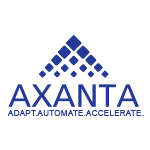
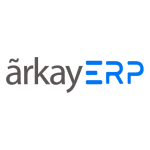

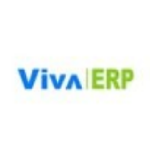
.png)
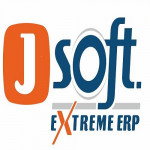

.png)
